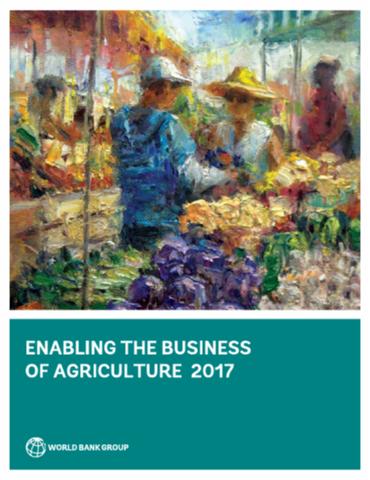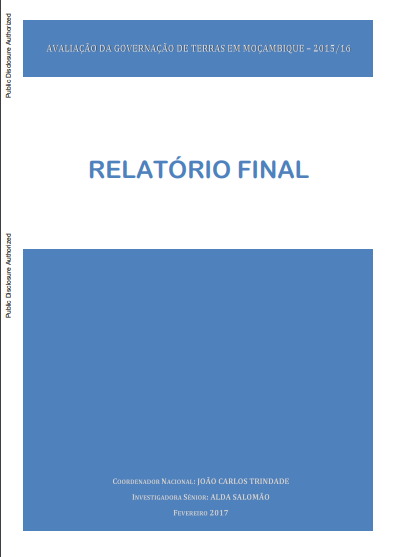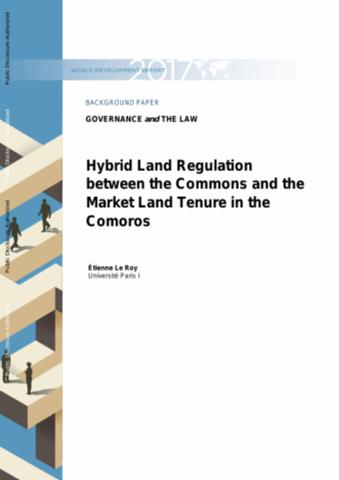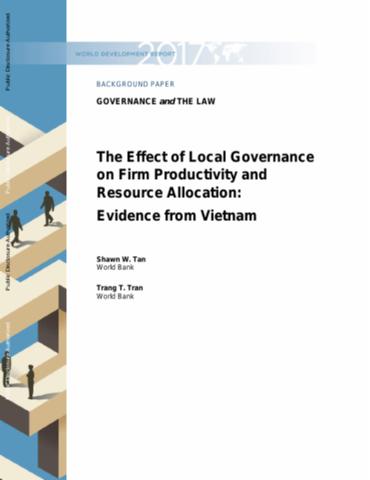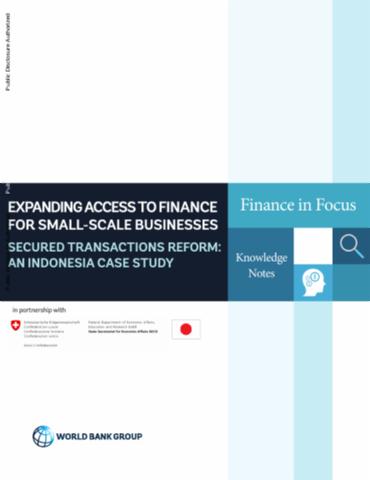The World Bank is a vital source of financial and technical assistance to developing countries around the world. We are not a bank in the ordinary sense but a unique partnership to reduce poverty and support development. The World Bank Group has two ambitious goals: End extreme poverty within a generation and boost shared prosperity.
- To end extreme poverty, the Bank's goal is to decrease the percentage of people living on less than $1.25 a day to no more than 3% by 2030.
- To promote shared prosperity, the goal is to promote income growth of the bottom 40% of the population in each country.
The World Bank Group comprises five institutions managed by their member countries.
The World Bank Group and Land: Working to protect the rights of existing land users and to help secure benefits for smallholder farmers
The World Bank (IBRD and IDA) interacts primarily with governments to increase agricultural productivity, strengthen land tenure policies and improve land governance. More than 90% of the World Bank’s agriculture portfolio focuses on the productivity and access to markets by small holder farmers. Ten percent of our projects focus on the governance of land tenure.
Similarly, investments by the International Finance Corporation (IFC), the World Bank Group’s private sector arm, including those in larger scale enterprises, overwhelmingly support smallholder farmers through improved access to finance, inputs and markets, and as direct suppliers. IFC invests in environmentally and socially sustainable private enterprises in all parts of the value chain (inputs such as irrigation and fertilizers, primary production, processing, transport and storage, traders, and risk management facilities including weather/crop insurance, warehouse financing, etc
For more information, visit the World Bank Group and land and food security (https://www.worldbank.org/en/topic/agriculture/brief/land-and-food-security1
Resources
Displaying 206 - 210 of 4906Enabling the Business of Agriculture 2017
Enabling the Business of Agriculture (EBA) 2017, the third report in the EBA series, offers insights into how laws and regulations affect private sector development for agribusinesses, including producer organizations and other agricultural entrepreneurs. Globally comparable data and scored indicators encourage regulations that ensure safety and quality of agricultural inputs, goods and services but are not too costly or burdensome.
Avaliação da governança da terra em Moçambique : 2015-16 - relatório final (Portuguese)
Avaliação da governança da terra em Moçambique : 2015-16 - relatório final (Portuguese)
Hybrid Land Regulation between the Commons and the Market Land Tenure in the Comoros
Following a chaotic political decolonization, from 1975 to 2000, the Comoros failed to sustain the extension of private land ownership pursued since the beginning of the twentieth century and to implement land reform prepared with the assistance of the FAO and the UNDP but abandoned after the assassination of the President of the Republic in 1989. This reform was based on a form of heritage management recognizing the plural and complementary nature of modes of securing land tenure.
The Effect of Local Governance on Firm Productivity and Resource Allocation
Governance quality plays a key role in private sector development: competent bureaucrats not only create good policies and regulations but also effectively implement them to shape the business environment. The authors exploit Vietnam’s decentralization of administrative tasks since the early 2000s to test this hypothesis. The authors examine how changes in the provincial administration of national business regulations affect firms through two channels: within firm productivity levels and resource allocation across firms.
Expanding Access to Finance for Small-Scale Businesses
A lack of access to finance has been one of the biggest impediments to the development and growth of the small-scale business sector in Indonesia. While micro, small and medium-sized enterprises (MSMEs) account for almost all employment in Indonesia (97 percent), the sector as a whole accounts for just about 57 percent of Gross National Product. Surveys suggest that one of the main constraints on the growth of the sector is a lack of access to finance, with almost half of Indonesian MSMEs citing access to finance as the top constraint to business growth.






